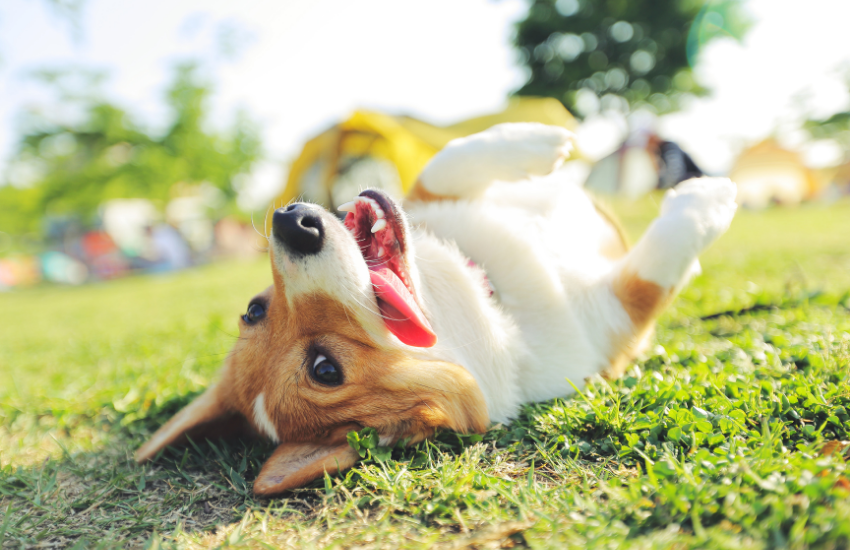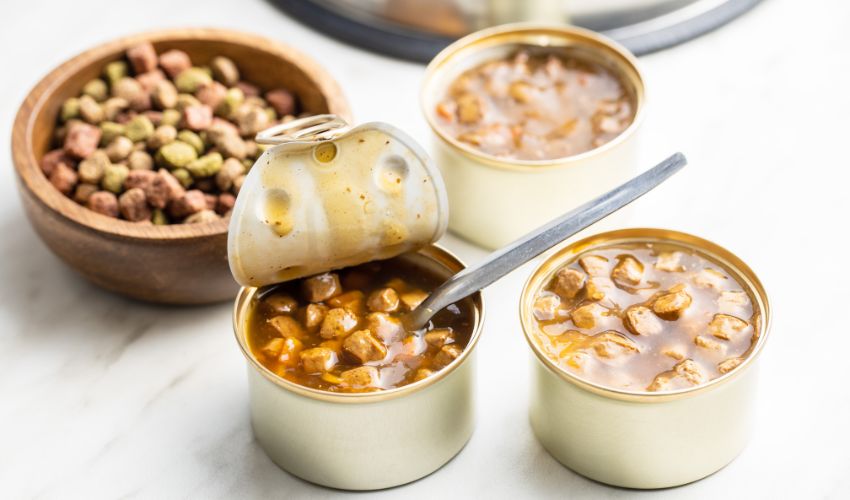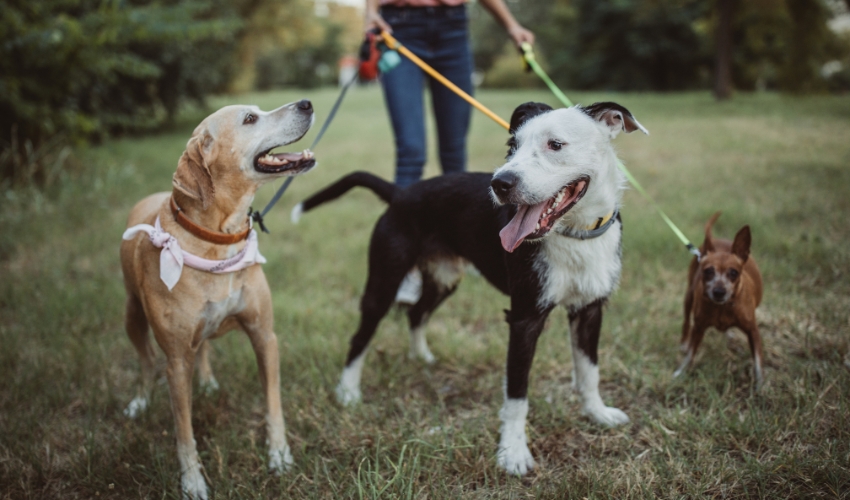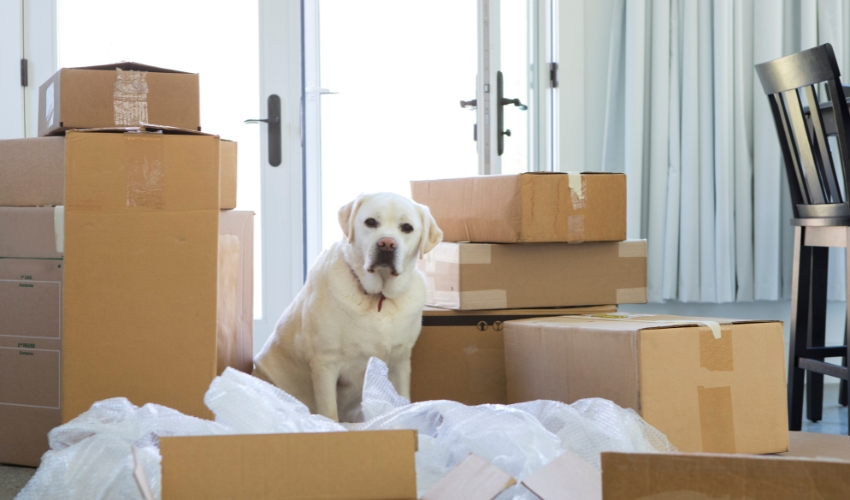You’ve probably seen your furry friend exhibit some unusual behaviors. Dogs can sometimes be quite amusing, from chasing their tail to barking at their reflection. But what about hiccups? Have you ever seen a dog hiccup? Are they the same as human hiccups, and is there anything you can do to help them stop?
In this post, we will explore the world of dog hiccups and find out what you need to know.
Can dogs get hiccups?
Yes, dogs can get hiccups, just like humans.
Contractions of the diaphragm muscle, the same muscle responsible for our hiccups, cause hiccups in dogs. Most dogs experience hiccups at least once, and it’s nothing to worry about unless it becomes excessive.
What causes dog hiccups?
The causes of dog hiccups are similar to those in humans. Some dogs may get it from;
Eating or drinking too quickly.
Dogs can be enthusiastic eaters like some people gulp their food and drinks. When they eat or drink too rapidly, they may swallow air, leading to hiccups; this is more common in puppies.
Excitement or stress
Dogs can get over-excited or stressed, especially during playtime or new experiences. This emotional rollercoaster can trigger hiccups.
Temperature changes
Sudden shifts in temperature, like going from a warm room to a chilly one, can also lead to hiccups in dogs.
Gastrointestinal issues
Occasionally, hiccups may result from irritation or inflammation in your dog’s gastrointestinal tract, such as acid reflux or indigestion.
Is there anything I can do to help my dog through hiccupping?
While doggy hiccups are generally harmless, you might wonder if you can do anything to help your pup during those cute little fits. Here are some tips:
#1 Slow down feeding time.
One of the common causes of hiccups in dogs is eating too quickly. When dogs eat too fast, they tend to swallow air and food, which can cause hiccups. To prevent this, try slowing down your dog’s eating time by using a slow-feeding bowl or placing a few objects, such as a tennis ball or a chew toy, in their bowl to make it more challenging for them to eat.
# 2 Avoid feeding your dog spicy or fatty food.
Spicy and fatty food can also cause hiccups in dogs. These types of food can irritate the stomach and produce excessive acid, which can then contribute to hiccups. So, it’s best to avoid feeding your dog anything too spicy or fatty if you notice they’re prone to hiccups.
#3 Keep your dog hydrated.
Dehydration can also cause hiccups in dogs. So, ensure your dog has plenty of water throughout the day. If your dog is a picky drinker, add a few drops of low-sodium chicken broth or tuna juice to their water bowl to make it more enticing.
#4 Reduce stress and anxiety in your dog.
Stress and anxiety can also trigger hiccups in dogs. If your dog tends to get anxious or stressed, especially during meals or when new people are around, try to reduce their stress levels. You can do this by providing a quiet and secure place for them to eat.
#5 Give your dog regular exercise and playtime.
Regular exercise and playtime can promote healthy digestion and prevent hiccups in dogs. Ensure your dog gets plenty of opportunities to burn off excess energy through activities like daily walks, games of fetch, or swimming.
Severe hiccups: When the little ‘hic’ becomes a significant concern.
While most dog hiccups are mild and temporary, some can be severe or prolonged. Suppose your dog experiences hiccups that are notably more intense or persist for an extended period. In that case, it’s time to take action.
Pain and discomfort
Severe hiccups can cause your dog pain and discomfort. They may struggle to catch their breath or exhibit signs of distress.
Underlying medical conditions
Severe hiccups may be a symptom of an underlying medical condition that requires immediate attention. This could include problems with the diaphragm, the respiratory system, or other health issues that must be addressed.
What severe symptoms should you watch out for?
Vomiting:
Frequent vomiting indicates something is amiss. It could mean a gastrointestinal issue or another health problem.
Diarrhea:
Diarrhea, especially severe or prolonged, could indicate gastrointestinal problems, infections, or food allergies.
Coughing:
If your dog is hiccuping and coughing simultaneously, it could suggest respiratory issues or throat irritation.
Lethargy:
If your dog is unusually lethargic, lacks energy, or appears uninterested in activities they typically enjoy, it may indicate an underlying problem.
Behavior changes:
Any significant changes in your dog’s behavior, such as aggression, anxiety, or withdrawal, may indicate an underlying health issue.
In the case of severe and prolonged hiccups, it’s essential to consult your veterinarian promptly. They will assess your dog’s condition, conduct necessary tests, and recommend appropriate treatments to alleviate their discomfort and address any underlying problems.
Knowing is good. Knowing more is better.
While hiccups in dogs are usually harmless, it’s essential to know when to seek veterinary attention for your furry friend. Knowing the symptoms and common triggers of hiccups in dogs, preventative measures, and treatment options can help you keep your dog healthy and comfortable. If you’re ever in doubt about your dog’s hiccups or any other symptoms, don’t hesitate to consult with your veterinarian.
Learn more about pet resources and connect with other animal lovers!
Become a Dooberteer, and together, we can make a difference in the lives of our pets.













